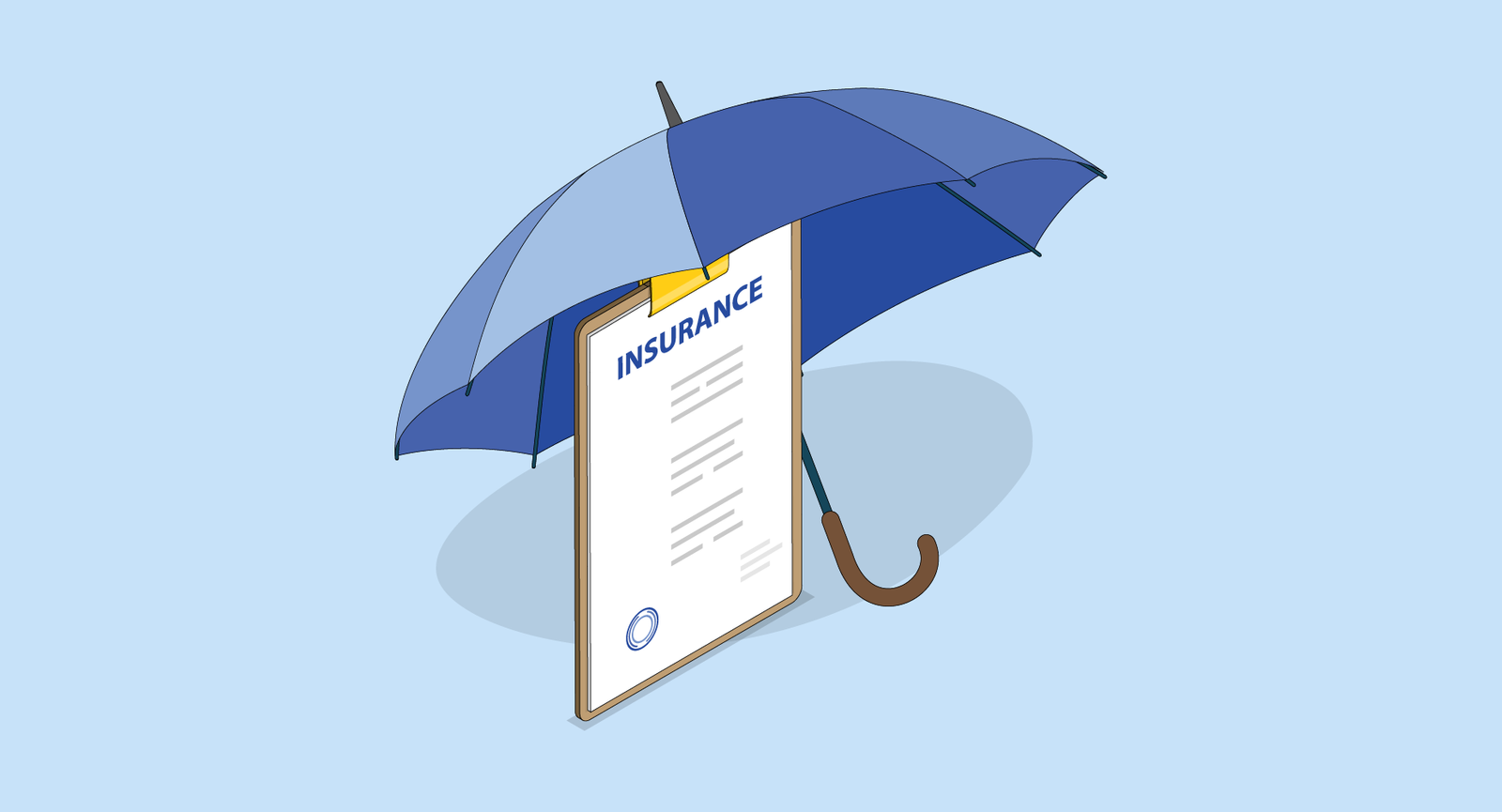What Is General Liability Insurance?
General liability insurance is a fundamental type of coverage that safeguards businesses against various risks that can lead to financial loss. It primarily offers protection from claims arising due to bodily injury, property damage, personal injury, and advertising injury. The main purpose of this insurance is to ensure that if a business is held liable for these types of incidents, it has the necessary financial resources to cover legal fees, settlements, or judgments that may ensue. This type of insurance is particularly important for companies that interact closely with the public or have significant operational exposure to various risks.
To elaborate further, bodily injury coverage within general liability insurance protects against situations where an individual sustains physical harm as a result of a business’s operations or on its premises. Property damage coverage extends protection to instances where a business unintentionally damages someone else’s property. Personal injury protection encompasses claims related to defamation, slander, or other non-physical harm that can impact an individual’s reputation or rights. Finally, advertising injury protects businesses from claims arising from advertising activities, such as infringement on intellectual property rights or false advertising.
It is essential to distinguish general liability insurance from other forms of business insurance, such as professional liability insurance, which covers errors or omissions in the services provided by professionals. Another essential contrast exists between general liability insurance and workers’ compensation coverage, which focuses solely on protecting employees injured during work. Understanding these distinctions helps business owners recognize the critical role that general liability insurance plays in their overall risk management strategy, ensuring a comprehensive safety net against unforeseen claims.
The Importance of General Liability Insurance
General liability insurance serves a crucial role in the landscape of business operations by providing financial protection against various risks that can lead to significant losses. For any business, the potential for accidents, injuries, or property damage is ever-present, and without adequate coverage, the financial repercussions could be dire. This type of insurance is designed to shield businesses from the costs associated with legal claims or settlements that arise due to these unforeseen incidents.
One of the primary functions of general liability insurance is to mitigate financial risks. When a business is held liable for an injury sustained on its premises or for damages caused by its products or services, the costs can escalate quickly. Legal fees, medical expenses, and compensation claims can put a severe strain on a company’s finances. General liability insurance alleviates this burden by covering these expenses, allowing businesses to function with a safety net in place.
Moreover, safeguarding assets is imperative for the longevity of any business. Assets such as property, equipment, and revenue can be compromised without appropriate protection. General liability coverage ensures that if a lawsuit arises, the insurance can help prevent assets from becoming rapidly depleted as a result of costly legal battles. This form of insurance not only protects tangible assets but also the overall reputation of the business, which can be adversely affected by negative public perception ensuing from liability claims.
Finally, the legal implications of operating without general liability insurance should not be underestimated. In many sectors, securing this coverage is not just a sound business practice; it is a legal requirement. Operating without it can expose businesses to lawsuits, fines, and other legal penalties that can hinder growth and lead to operational disruptions. Therefore, general liability insurance is not merely an option; it is a fundamental component of a responsible business strategy essential for ensuring continuity and resilience.
Who Needs General Liability Insurance?
General liability insurance is an essential safeguard for a wide array of businesses and professionals across various industries. Regardless of size, any business or individual offering services, products, or engaging in commercial activities should consider obtaining this type of insurance. The protection it offers against claims of bodily injury, property damage, and personal injury can provide peace of mind and financial security.
For instance, businesses in the construction industry are often at a higher risk due to the nature of their work. Construction sites can be hazardous environments where accidents may occur, leading to potential liability claims. Therefore, contractors, subcontractors, and construction companies must prioritize general liability insurance to protect themselves from lawsuits and claims that could arise from on-site injuries or damages.
Retail establishments, ranging from small shops to large department stores, also constitute a significant segment that should consider this coverage. A slip and fall accident in a store can expose the business to substantial legal fees and compensation costs. By securing general liability insurance, retail owners can protect their financial assets and ensure that they are covered in case of unforeseen incidents.
Moreover, professionals offering services, such as consultants, architects, and healthcare providers, are equally at risk. They may face lawsuits due to claims of negligence or inadequate service. Having general liability insurance allows them to defend against such allegations while maintaining their business reputation and client trust.
In essence, both small and large businesses, regardless of their industry, can significantly benefit from general liability insurance. This coverage not only aids in protecting assets but also enhances credibility, making it a vital component of any solid business strategy.
Key Coverages Offered by General Liability Insurance
General liability insurance provides essential protections for businesses against various types of risks. One of the primary coverages included in such a policy is bodily injury coverage. This coverage protects businesses if a third party suffers physical injury on their premises or as a result of their operations. For instance, if a customer slips and falls in a store, this coverage may help cover medical expenses and legal fees, safeguarding the business from potentially devastating financial consequences.
Another vital component is property damage coverage. This type of coverage addresses circumstances where the business unintentionally damages someone else’s property. For example, if a contractor accidentally spills paint on a client’s carpet, this coverage would cover the cost of cleaning or replacing the damaged property. Such protections are crucial for maintaining healthy relationships with clients and avoiding costly disputes.
Medical payments are also a significant aspect of general liability insurance. This provision allows for payment of medical expenses incurred by injured parties, regardless of fault. Suppose a visitor is injured at a company’s office. In that case, medical payments coverage can facilitate prompt payment for their medical needs, possibly preventing the situation from escalating into a more severe claim or legal action.
Finally, general liability insurance includes coverage for personal and advertising injury. This protects businesses from claims related to defamation, copyright infringement, or false advertising. For instance, if a company erroneously uses a competitor’s trademark in promotional materials, this coverage can help address potential legal repercussions. Overall, these coverages combined create a robust safety net for businesses, ensuring they can navigate potential liabilities with greater confidence.
How to Choose the Right General Liability Insurance Provider
Selecting the appropriate general liability insurance provider is a vital decision for any business, as it directly affects your financial protection against claims. One of the foremost considerations should be the financial stability of the insurance company. A provider with a strong credit rating from agencies such as A.M. Best or Standard & Poor’s can offer greater assurance that they will be able to pay out claims when necessary. Researching the company’s financial health can prevent potential headaches in the future, especially during critical moments when support is needed the most.
Another essential aspect to assess when choosing a general liability insurance provider is their customer service reputation. Reading reviews and testimonials can provide insights into how other businesses have experienced the provider’s support in times of need. A responsive, knowledgeable customer service team can make a significant difference when navigating claims or inquiries about your policy. Consequently, prioritize companies that maintain a customer-centric approach.
Coverage offerings are equally important when selecting a general liability insurance provider. Not all policies are created equal; some may include specific endorsements or exclusions that could impact your level of protection. Therefore, it is crucial to thoroughly understand what each policy entails. Comparing options across various providers to ensure you receive adequate coverage for your particular business needs is advised.
Lastly, conducting a price comparison is essential. While cost should not be the sole factor in your decision, it is a significant element. Obtaining quotes from multiple providers can help you find a competitive rate without compromising essential coverage. Ensure to evaluate policy specifics, including deductibles and limits, alongside premiums, to determine the best fit for your budget.
Common Exclusions in General Liability Insurance
General liability insurance serves as a vital component of risk management for businesses, providing coverage against a range of claims including bodily injury, property damage, and personal injury. However, it is essential for business owners to understand that certain exclusions may limit the scope of this insurance type. Awareness of these exclusions is necessary to determine if additional coverages might be required to adequately protect a business from various risks.
One notable exclusion in general liability insurance policies pertains to professional services. Businesses that offer professional advice or services, such as consulting firms or medical providers, typically require specialized coverage, such as professional liability insurance. This is because general liability policies do not cover claims arising from negligence in the performance of professional duties or errors in judgment. As a result, professionals must oversee their liability risks independently to ensure comprehensive protection.
Employee injuries also represent a significant exclusion from general liability insurance. Typically, workers’ compensation insurance addresses claims related to employee injuries occurring during the course of employment. This type of coverage ensures that employees receive medical benefits and compensation for lost wages without placing liability on the employer. It is crucial for business owners to recognize that general liability insurance will not provide compensation for workplace injuries, emphasizing the need for adequate workers’ compensation policies.
Additionally, intentional acts or criminal behavior are not covered under general liability insurance. If an employee deliberately damages property or engages in unlawful actions, the resulting claims will be excluded from coverage. Businesses should foster a work environment that discourages such behavior and develop risk management strategies to mitigate the potential for intentional wrongdoing. Understanding these exclusions allows business owners to assess their insurance needs more effectively, ensuring that they secure the necessary protections against gaps in coverage.
Cost Factors for General Liability Insurance
The cost of general liability insurance is influenced by several factors, each of which varies depending on the unique characteristics of a business. Understanding these determinants can assist businesses in anticipating costs and effectively managing their insurance premiums. One of the most significant factors is the size of the business. Larger organizations typically encounter higher premiums due to increased exposure to risk and greater likelihood of liability claims. This is often a result of a larger workforce and an expanded customer base, which may elevate the chances of accidents or incidents occurring.
Another crucial aspect is the industry risk level. Different sectors have different risks associated with them; for example, construction companies often face higher premiums compared to office-based businesses due to the physical nature of their operations and the higher likelihood of injuries. Insurers assess the inherent risks of a given industry when determining premium rates—a construction firm may incur costs significantly higher than an accounting firm because of its operational hazards.
A business’s claims history is also a vital consideration. Companies with a history of frequent or severe claims may face higher premiums as they are viewed as higher-risk clients. Conversely, a record of minimal claims can lead to favorable rates as insurers see them as responsible buyers of insurance. Additionally, specific coverage limits and deductibles requested by a business can impact costs. Higher coverage limits will typically increase premiums, while opting for a higher deductible may lower them. Businesses should evaluate their risk tolerance and coverage needs in making these decisions. Understanding these factors allows business owners to better navigate the complexities of general liability insurance costs.
Steps to Filing a Claim Under General Liability Insurance
Filing a claim under your general liability insurance policy can be a straightforward process if you follow the appropriate steps. To ensure that your claim is processed smoothly, it is important to understand the necessary documentation and communication practices involved. Below is a step-by-step guide for businesses to assist them in this process.
Firstly, the initial step is to notify your insurance provider as soon as an incident occurs. Timeliness is essential; many policies stipulate a specific time frame within which claims must be reported. This notification can often be initiated via a phone call to your insurer’s claims department, followed by the completion of any formal claim forms they provide. Be prepared to share details about the incident, including date, time, location, and parties involved.
Next, it is important to thoroughly document the incident. Gather all relevant information, such as photographs, witness statements, and any correspondence related to the event. This evidence will be essential to support your claim and demonstrate the circumstances that led to the alleged liability. Furthermore, maintaining a detailed record of your interactions with the insurance company, including dates, times, and a summary of discussions, will help in managing the claims process.
Following your filing, your insurance provider will typically conduct an investigation. They may reach out for additional information or clarification regarding the incident. It’s crucial to stay responsive and provide any requested documentation promptly to avoid delays. Establishing clear communication with your insurance agent is vital; they can guide you through the claims process and ensure that you understand the next steps.
Lastly, once your claim has been reviewed and evaluated, the insurance company will communicate its decision. If approved, they will outline the compensation terms. However, if your claim is denied, you have the right to appeal the decision. By adhering to this structured approach, businesses can navigate the claims process under their general liability insurance more effectively.
Real-Life Case Studies: The Impact of General Liability Insurance
To better understand the significance of general liability insurance, examining real-life case studies can provide valuable insights into its impact on businesses. One notable instance is a small construction company that operated without sufficient general liability coverage. During a routine project, a worker accidentally damaged a neighboring property, resulting in substantial repair costs. Since the company did not possess adequate insurance, the financial burden fell entirely on its owners, leading to severe cash flow problems and ultimately forcing the business to close down. This case highlights the potential risks associated with operating uninsured or underinsured.
In contrast, consider a local bakery that invested in comprehensive general liability insurance. After a customer slipped and fell inside the bakery due to a misplaced rug, the establishment faced a lawsuit claiming compensation for medical expenses. Fortunately, the bakery’s insurance covered the legal fees and settlement costs, allowing the business to maintain its reputation and continue operations without significant financial strain. This situation illustrates how having proper insurance can protect a business from unforeseen liabilities.
Another example involves an e-commerce retailer that failed to secure general liability coverage while expanding its operations. When a promotional campaign resulted in a product defect that led to injuries among customers, the company found itself exposed to multiple lawsuits. They soon realized that their lack of insurance not only threatened their financial stability but also their brand image. The aftermath of these claims severely hampered their ability to recover in the marketplace.
These case studies emphasize that general liability insurance is not merely an optional expense for businesses; it is a critical component of risk management. The protection offered by this type of insurance can mean the difference between recovery and closure in the face of unexpected events. Investing in appropriate coverage can safeguard a business’s future, allowing it to navigate challenges with greater confidence.




